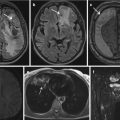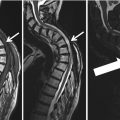Category
Relevant incidental finding
Recommended action
Strong net benefit
Information revealing a condition likely to be life-threatening
Information revealing a condition likely to be grave that can be avoided or ameliorated […]
Disclose to research participant as an incidental finding, unless she or he elected not to know
Possible net benefit
Information revealing a nonfatal condition that is likely to be grave or serious but that cannot be avoided or ameliorated, when a research participant is likely to deem that information important […]
May disclose to research participants as an incidental finding, unless she or he elected not to know
Unlikely net benefit
Information revealing a condition that is not likely to be of serious health or reproductive importance
Information whose likely health or reproductive importance cannot be ascertained
Do not disclose to research participants as an incidental finding
Principally, the content of this table is already very suitable advice as a basis for recommendations regarding the question, which IFs should be communicated. There are two critical points that catch the eye just on second sight, which should nevertheless be mentioned at least shortly: To begin with, there is a discussion in progress about the question, what happens if a participant/patient chooses the right not to know and the inspection of the imaging scans reveals life-threatening information? Particularly, the question, if there is a “duty to communicate” in order to guarantee the protection of third party interests, is heavily discussed (Schmücker 2012). One way to avoid conflicts of this kind is the exclusion of persons choosing the right not to know from the possibility of participation. An in-depth discussion of this issue is not possible at this point. But at least the adumbration may be permitted that choosing this procedure would mean that particularly those persons actually participating for altruistic reasons are excluded and “punished” in a way for this attitude. Furthermore the decision only to disclose conditions which can be avoided or at least ameliorated might be estimated as violation of the principle of respect for persons. Withholding information lacks a comprehensible justification at least for validated information regarding severe conditions.
Besides that, the classification and the corresponding recommendations of Wolf and her colleagues seem to be very applicable not even for the research context but also for the medical care and DTC context. The issue why they are not included in the recommendation compilations, neither the US nor the UK report, therefore, remains unsettled. We presume that this has to do with the impact of Wolf’s proposal not to disclose information “whose likely health importance cannot be ascertained.” Currently, imaging examinations, even in the clinical context, produced a high number of IFs with indeterminate value. The ascertainment of importance for health is not always verifiable without vast effort particularly of radiologists’ expertise, and even then, there would remain information whose significance could only be validated by the conduction of subsequent examinations. As the UK report mentions in its recommendations, there is a “lack of evidence on some key areas” which can only be eliminated by further research, which explains the vagueness of current regulations on the one hand and the demand for further activity which is mirrored in recommendation no. 3 of the Presidential Commission’s report on the other hand: “Federal agencies and other interested parties should continue to fund research regarding incidental and secondary findings. This research should consider the types and frequency of findings that can arise from various modalities; the potential costs, benefits, and harms of identifying, disclosing, and managing these findings; and recipient and practitioner preferences about the discovery, disclosure, and management of incidental and secondary findings” (Presidential Commission for the Study of Bioethical Issues 2013).
3.3 Who Should Interpret the Images and Decide About the Disclosure of IFs?
Altogether the previous considerations should have made apparent that once the decision is made and that at least certain IFs will be disclosed, the decision which ones in particular has to be the result of a thorough assessment to ensure a minimal amount of false-positive as well as false-negative results and can’t be committed by persons without appropriate qualification, training, and knowledge. Naturally, in medical care contexts as well as in DTC contexts, the reporting will be conducted by clinicians/radiologists. In the research context, different ways are established to implement radiologist expertise in the reporting process, e.g., in SHIP (Study of Health in Pomerania, see Chap. 5), a population-based study including a whole-body MRI, two radiologists examine the imaging scans independently of each other, whereas ambiguous cases are presented to a senior radiologist. Findings of unclear significance and without precedent are regularly discussed by an interdisciplinary advisory board, comprising radiologists, clinicians of different fields, epidemiologists, and ethicists before a decision regarding the question of disclosure is rendered (Langanke and Erdmann 2011; Schmidt et al. 2013). But also other sound solutions are conceivable. For example, the UK report mentions a research study group from the University of California conducting brain MRIs that established a web-based system in which board-certified neuroradiologists review scans of unclear value (The Royal College of Radiologists 2011). The idea to centralize the review process would not only have the advantage of greater unity of results. In this context, Berland, the chair of the American College of Radiology, points to the fact that currently there is a lack of standardized reporting which could lead to different interpretations as a result of the fact that the backgrounds and experiences of the concerned radiologists differ (Presidential Commission for the Study of Bioethical Issues 2013). Additionally this would insofar correspond with the issue of the overarching recommendations no. 3, no. 4, and no. 10 of the Presidential Commission’s report as those include the claim that efforts should be undertaken to achieve more knowledge and transparency regarding the handling of IFs which again is provided as guidance to clinicians and researcher. This is surely associated with lots of effort, but investing less is probably incompatible with the demand to treat participants in accordance with the ethical principles of respect, the minimization of harm, etc.
3.4 Informing About the Handling of IFs/Consent Processes
The recommendations in regard to informing the patients, participants, and consumers are absolutely clear: Persons that consider taking part in any examination that bear the risk of IFs have to be informed about this. This means in detail that they have to be informed about:
The risk that IFs will be detected and their prevalence
The handling of IFs
Risk of false-positive and false-negative results
Negative consequences that might result from the disclosure (job chances, insurance issues, etc.)
The fact that clarification again might be accompanied by own risks and psychological distress
Possibilities to deny receiving certain findings
In case that the examinations take place in the research context, they additionally have to be informed in a way that prohibits the occurrence of therapeutic/diagnostic misconception.
The ethical principles of respect and beneficence as well as justice and fairness demand that consent procedures are designed in a way that guarantees transparency about examination conditions and enables the concerned persons to conduct a weighing considering benefits but also risks plus the corresponding chances of either. The Presidential Commission’s report emphasizes especially the responsibility of the informing persons to provide guidance and support in making informed choices in all three contexts (e.g., recommendation no. 5, no. 7, and no. 15). Therefore informing should include the use of decision aids, graphical representations, etc., and can in certain cases require to point out or to respect that the waiving of certain examinations or denying to receive certain results, respectively, might be the more beneficial decision for the individual. By the way, possibilities and restrictions to ensure a valid informed consent are currently an own matter of controversial discussions.
3.5 Designing a Study Protocol in Research
The designing of a study protocol in research should, so the Presidential Commission, comprise the anticipation of IFs that are “predictably associated with a particular modality or type of research” and a corresponding and detailed plan on how to handle them. For cases in which clarification and therefore subsequent examinations are necessary, the plan should provide sufficient guidance concerning health insurance and therefore the safeguarding of treatment. Furthermore the Commission claims that this plan for ethical management of IFs should be submitted to an IRB, which reviews the plan and gives its approval (Presidential Commission for the Study of Bioethical Issues 2013).
Another issue that stands in connection with the design of the study protocol is the choice of the appropriate modality and adjustment fitting to the hypothesis or question, respectively, that shall be proved or examined. It makes a difference whether one conducts a whole-body MRI for epidemiological purposes or to satisfy in the DTC context people’s wish for early detection of any pathological process that might go on or if the purpose of the examination is the clarification of some specific question and focuses on one selected area. Apparently the rate of false-positive and false-negative findings will depend on the chosen procedure and therefore controversial opinions exist regarding the question if, e.g., for MRIs, only limited sequences should be used or clinical standard scans should be added to reduce the risk of false-positive findings (The Royal College of Radiologists 2011).
Stay updated, free articles. Join our Telegram channel

Full access? Get Clinical Tree






